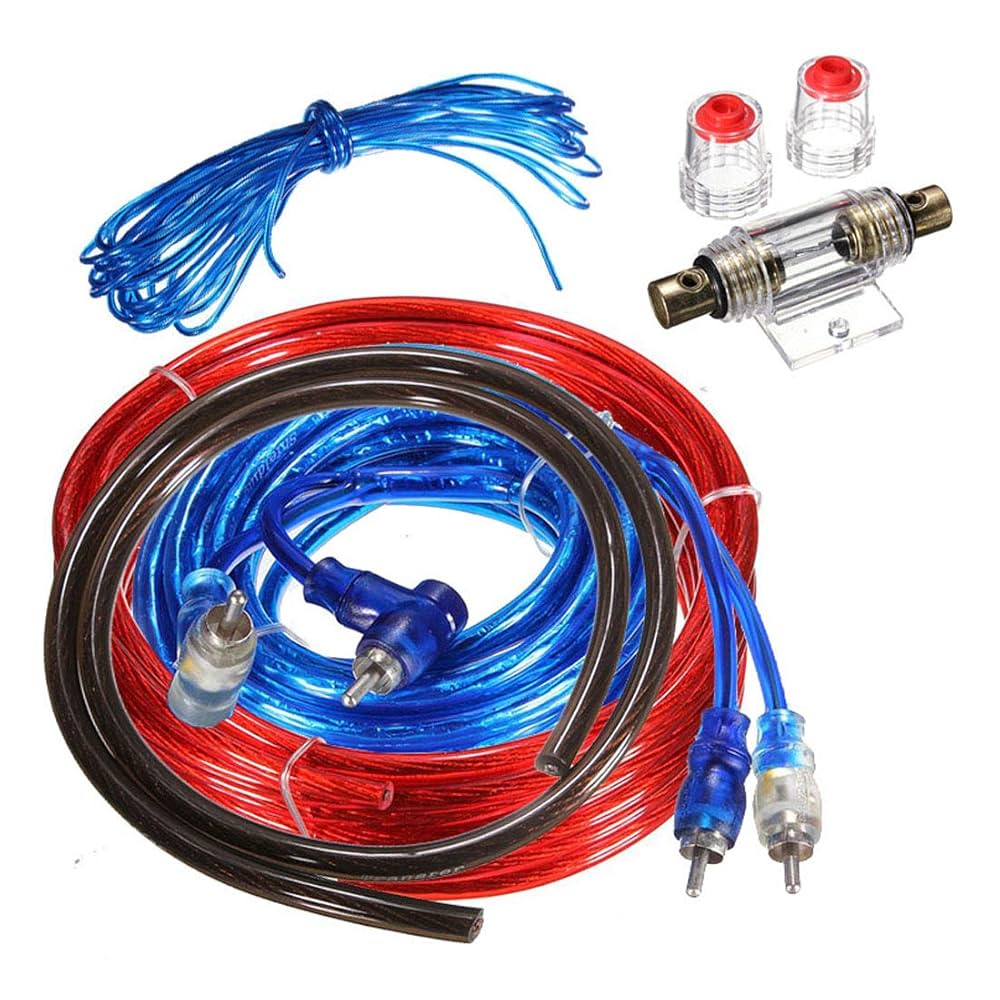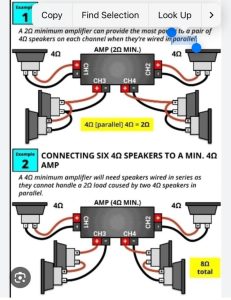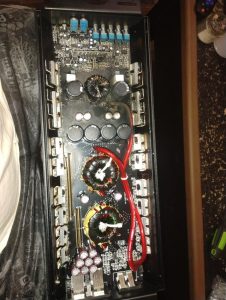Are you upgrading your car’s sound system and wondering what size wire you need for your amplifier? Choosing the right wire size is more important than you might think.
It affects how well your amp performs and can even protect your car’s electrical system. If you pick the wrong wire, you could face poor sound quality or, worse, damage to your equipment. Keep reading to find out exactly what wire size works best for your car amplifier and how to make sure your setup delivers powerful, clear sound every time.

Credit: www.amazon.ca
Choosing The Right Wire Gauge
Choosing the right wire gauge is crucial for your car amplifier’s performance and safety. The wire size directly impacts how much current flows from your battery to the amplifier. If you pick a wire that’s too thin, it can cause voltage drops, overheating, or even damage your equipment.
How Wire Gauge Affects Performance
Wire gauge determines the thickness of the wire. Thicker wires have lower resistance, allowing more current to pass through without losing power.
If the wire is too thin for your amplifier’s power needs, it struggles to deliver enough current. This can cause your amp to underperform or shut down unexpectedly. It may also cause the wire to heat up, which is a fire hazard.
Think about your car’s electrical system like a highway. A narrow road (thin wire) slows down traffic (electricity), while a wider road (thicker wire) allows smooth flow. Would you want to drive on a congested road every day?
Common Wire Sizes For Car Amplifiers
Choosing the right wire gauge depends on your amplifier’s power and the length of the wire run. Here are some common wire sizes used in car audio:
- 4 Gauge:Ideal for amplifiers up to about 1000 watts RMS and runs under 15 feet.
- 8 Gauge:Suitable for smaller amplifiers around 500 watts RMS or shorter wire runs.
- 0 Gauge (1/0):Used for high-power systems over 1000 watts RMS or longer distances.
It’s important to consider the distance because longer wires cause more voltage drop. If your amplifier is far from the battery, you’ll need a thicker wire to compensate.
| Wire Gauge | Max Amplifier Power | Recommended Distance |
|---|---|---|
| 8 Gauge | Up to 500 Watts RMS | Less than 10 feet |
| 4 Gauge | Up to 1000 Watts RMS | Up to 15 feet |
| 0 Gauge | Above 1000 Watts RMS | Over 15 feet |
Ask yourself: Are you maximizing your system’s potential or limiting it with the wrong wire size? Choosing the correct gauge can save you from headaches and costly upgrades later.
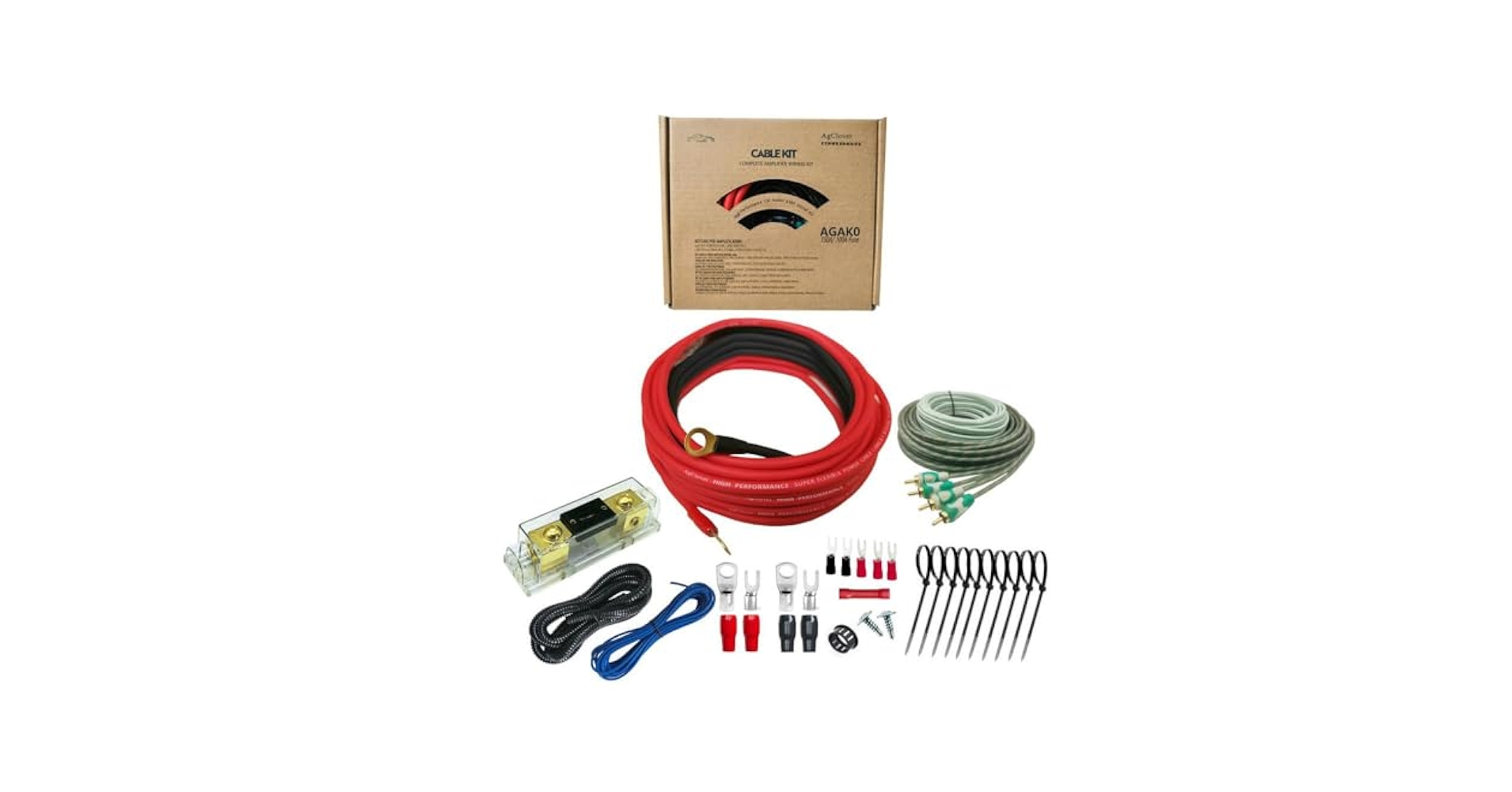
Credit: www.amazon.com
Calculating Wire Size Based On Amplifier Power
Choosing the right wire size for a car amplifier is crucial for safety and sound quality. The wire must handle the amplifier’s power without overheating or losing voltage. Calculating the wire size depends on the amplifier’s wattage and the distance the wire runs. This ensures the amplifier gets enough power for clear, strong audio.
Matching Wire Gauge To Amplifier Wattage
The wire gauge must match the amplifier’s power output. Higher wattage amps need thicker wires. Thin wires can overheat or cause voltage drops. Below is a simple guide for wire sizes based on amplifier wattage:
| Amplifier Power (Watts RMS) | Recommended Wire Gauge (AWG) |
|---|---|
| Up to 300W | 16 AWG |
| 300W to 600W | 14 AWG |
| 600W to 900W | 12 AWG |
| 900W to 1200W | 10 AWG |
| 1200W and above | 8 AWG or thicker |
Use this chart as a starting point. Adjust wire size for your specific setup needs.
Considering Wire Length And Voltage Drop
Wire length affects voltage drop. Longer wires lose more voltage. This can weaken amplifier performance. To reduce voltage drop, use thicker wire for longer runs. A short wire can use the minimum recommended gauge. For longer distances, increase wire thickness by one or two gauges.
- Keep wire runs as short as possible.
- Use thicker wire for runs over 10 feet.
- Check voltage drop to ensure power delivery.
Proper wire size prevents power loss and protects your amplifier and battery.
Types Of Wire For Car Amplifiers
Choosing the right wire for your car amplifier is vital for sound quality and safety. Different wires have unique features that affect performance. Understanding these types helps select the best wire for your setup.
Copper Vs. Aluminum Wiring
Copper wire is the top choice for car amplifiers. It carries electricity better and has low resistance. This means less power loss and better sound output. Copper is also more flexible, making installation easier.
Aluminum wire is lighter and cheaper than copper. But it has higher resistance, which can reduce amplifier performance. Aluminum also needs special connectors to avoid corrosion. For most users, copper wire is the safer and more efficient option.
Insulation Types And Their Importance
Insulation protects wire from heat, moisture, and damage. It keeps electrical currents stable and prevents shorts. Different insulation materials offer varied benefits.
- PVC:Common and affordable. Good for most car environments.
- PE (Polyethylene):More heat resistant than PVC. Ideal for hot engine areas.
- Teflon:High heat and chemical resistance. Used in extreme conditions.
Choosing the right insulation ensures wire longevity and safety. It also helps maintain clear sound signals without interference.
Installation Tips For Amplifier Wiring
Proper wiring is crucial for a car amplifier’s performance and safety. Following some key installation tips helps prevent power loss and damage. It ensures the amplifier runs smoothly without electrical issues. Focus on securing wires correctly and avoiding interference for the best results.
Securing And Routing The Wire
Keep the wire tight and secure along its path. Use clamps or zip ties to hold wires in place. Avoid loose or hanging wires that can get caught or damaged. Route wires away from moving parts like pedals and steering components. Run power and ground wires on opposite sides of the vehicle if possible. This practice reduces noise and interference in the audio system.
Avoiding Interference And Damage
Keep amplifier wires away from engine wires and other electronic cables. Electrical noise from these sources can cause audio distortion. Use wire loom or conduit to protect cables from heat and sharp edges. Check wire insulation for any cuts or nicks before installation. Replace damaged wires to prevent shorts or fires. Ensure ground wires have a clean, bare metal connection to reduce noise. Test the system after wiring to confirm clear sound and stable power.
Safety Measures And Best Practices
Proper safety measures protect your car and audio system. Using the right wire size is only one part of safe installation. Following best practices lowers risks of fire and damage. It also ensures your amplifier works well over time.
Using Fuses And Circuit Breakers
Fuses and circuit breakers stop electrical faults from causing harm. Always place a fuse close to the battery. This protects the wire from short circuits and power surges. Choose a fuse that matches the amplifier’s current needs. Circuit breakers can reset automatically, giving extra convenience. Both devices prevent overheating and potential fires.
Regular Maintenance And Inspection
Check wires and connections often to keep your system safe. Look for signs of wear, corrosion, or loose contacts. Replace damaged wires immediately to avoid power loss or shorts. Clean terminals and connectors to ensure good contact. Regular checks help catch issues early, saving money and hassle later.
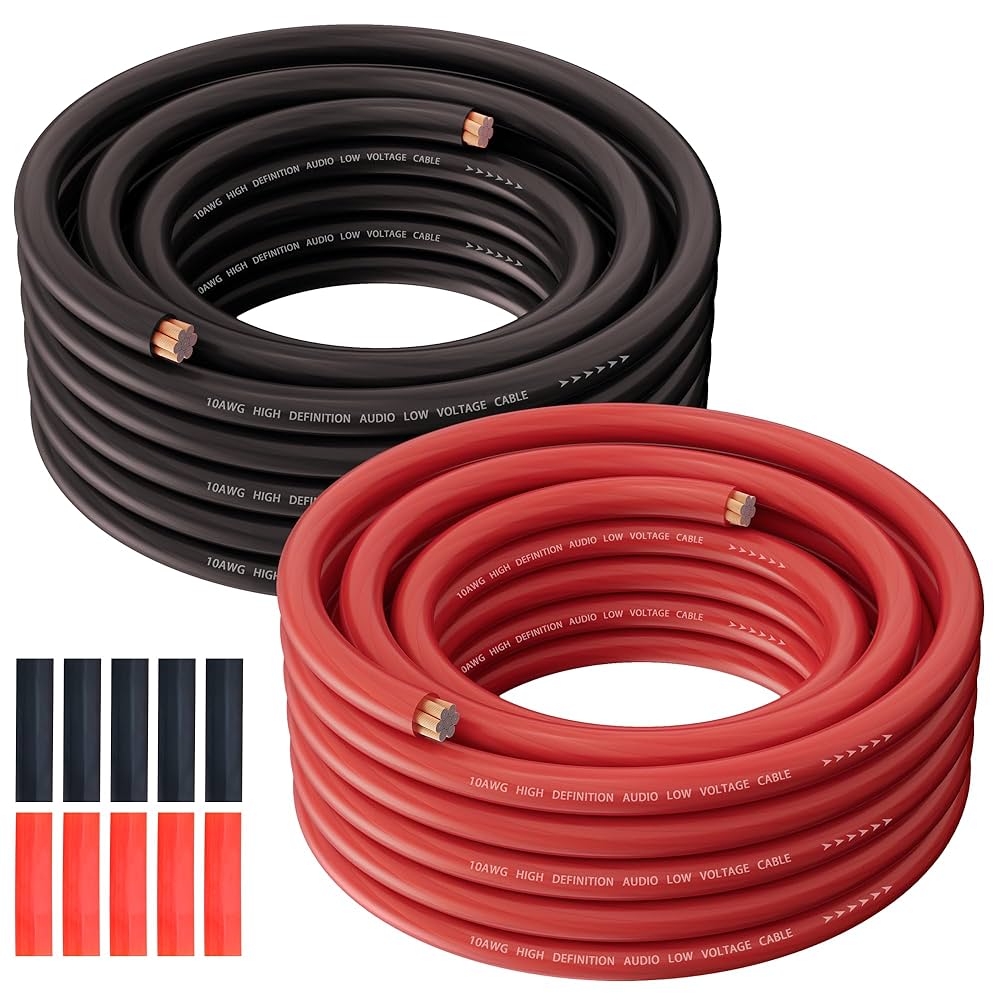
Credit: www.amazon.com
Troubleshooting Common Wiring Issues
Wiring issues can cause poor amplifier performance and sound problems. Troubleshooting these issues helps keep your car audio system running smoothly. Small wiring faults often lead to big problems.
Check wiring carefully for common signs of trouble. Fixing these issues improves power flow and sound quality. Here are key points to consider when troubleshooting wiring for your car amplifier.
Identifying Voltage Drop Problems
Voltage drop happens when power loses strength through wires. This causes your amplifier to get less power than it needs.
- Look for dim or weak sound from speakers.
- Check wire length; longer wires cause more voltage drop.
- Use thicker wire to reduce resistance and power loss.
- Measure voltage at the amplifier and battery to find drops.
Fixing voltage drop improves amplifier performance and sound clarity.
Fixing Loose Or Corroded Connections
Loose or corroded connections block proper current flow. This causes crackling sounds or no sound at all.
- Inspect all wire terminals and connectors for looseness.
- Look for green or white corrosion on metal parts.
- Clean corroded parts with a wire brush or sandpaper.
- Tighten all screws and clamps securely.
- Use dielectric grease to prevent future corrosion.
Proper connections ensure steady power and strong audio signals.
Frequently Asked Questions
What Gauge Wire Is Best For Car Amplifiers?
The best gauge wire for car amplifiers depends on the amp’s power and distance. Generally, 8-gauge is suitable for up to 600 watts, while 4-gauge is ideal for 600-1,200 watts. For over 1,200 watts, consider 2-gauge or 0-gauge wire. Always consult your amplifier’s manual for specific recommendations.
How Do I Determine Wire Size For My Amp?
To determine the right wire size, consider the amplifier’s wattage and installation distance. Use a wire gauge chart to match these factors. Larger amps need thicker wires to ensure efficient power flow. Always prioritize safety and performance by choosing the correct wire size.
Why Does Wire Size Matter For Amplifiers?
Wire size impacts the efficiency and safety of power transmission to amplifiers. Using the correct wire size prevents overheating and voltage drops. It ensures optimal performance and longevity of the audio system. Inadequate wire size can lead to poor sound quality and potential damage.
Can Using The Wrong Wire Size Damage My Amp?
Yes, using the wrong wire size can damage your amplifier. Inadequate wire size can cause overheating and voltage drops. This may lead to poor sound quality or even equipment failure. Always use the recommended wire gauge to ensure your amp operates safely and efficiently.
Conclusion
Choosing the right wire size keeps your car amplifier safe and strong. Thin wires can cause power loss and heat. Thick wires carry more electricity without trouble. Match wire size to your amplifier’s power needs. This helps your sound stay clear and loud.
Always check wire length too; longer wires may need thicker sizes. Taking time to pick the right wire improves your car audio experience. Simple steps make a big difference in sound quality and safety. Your music will thank you.

